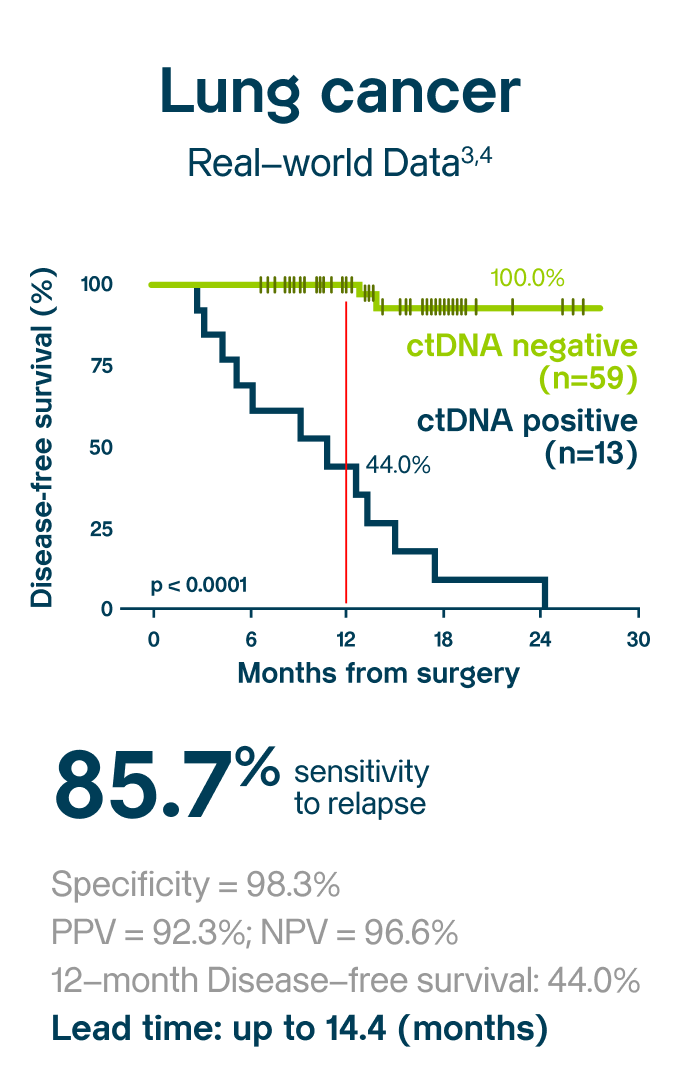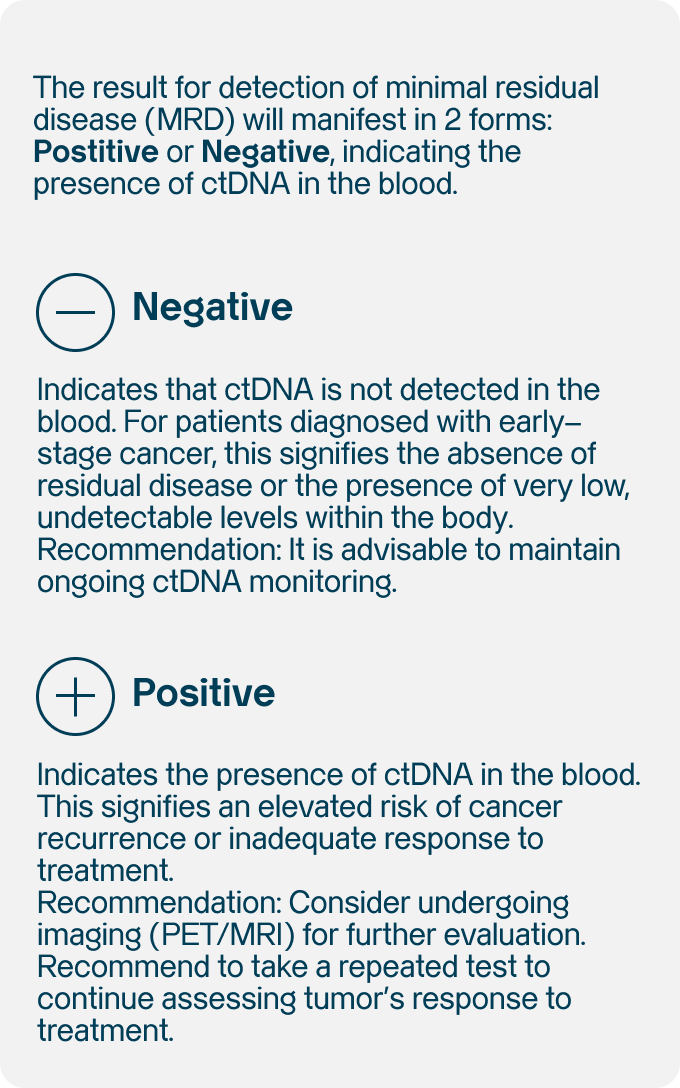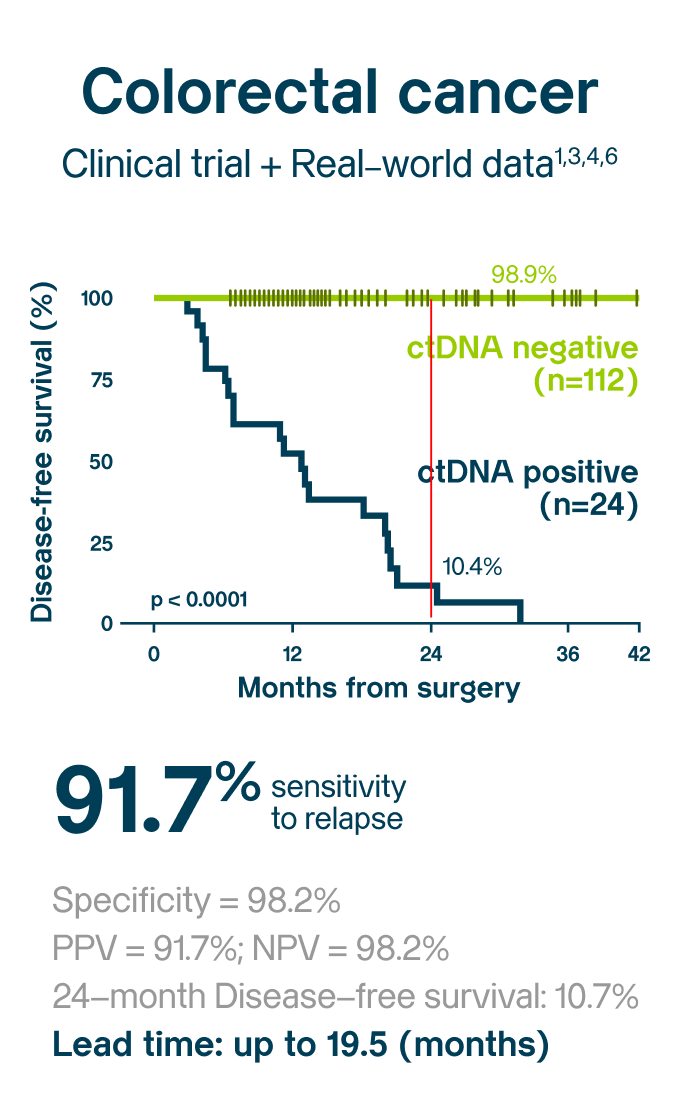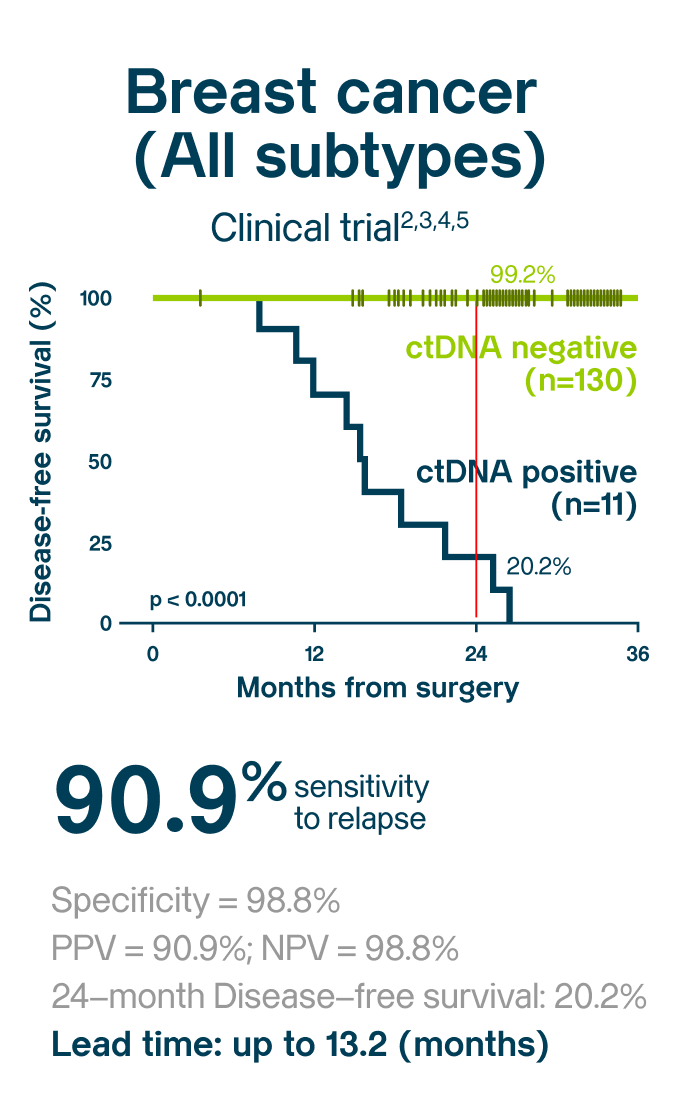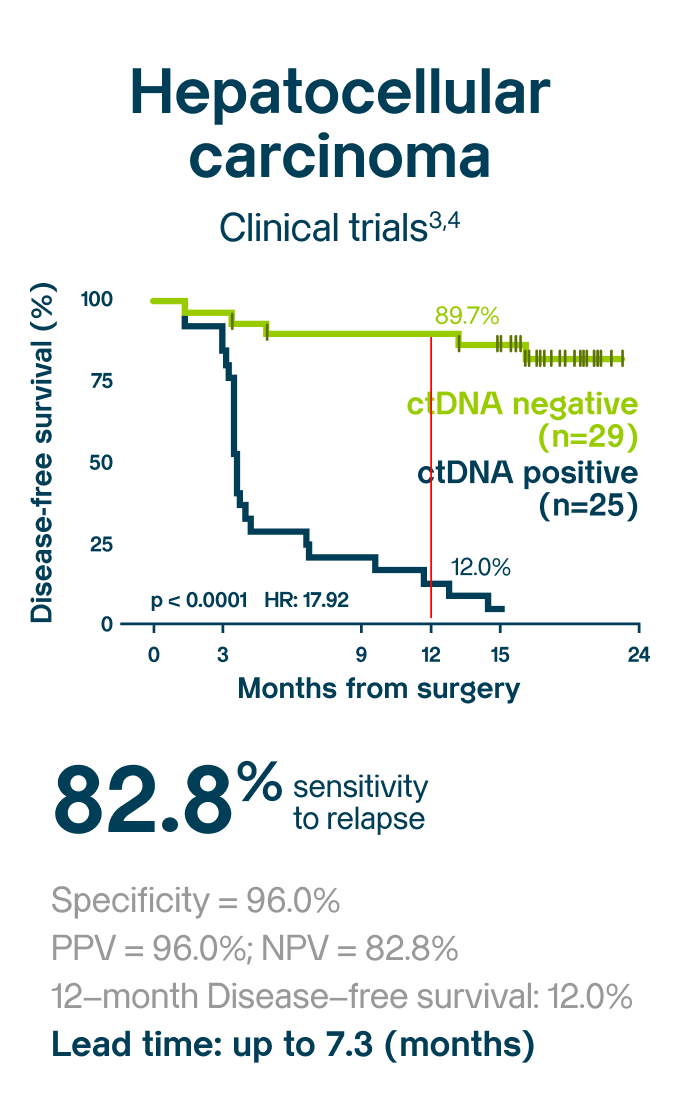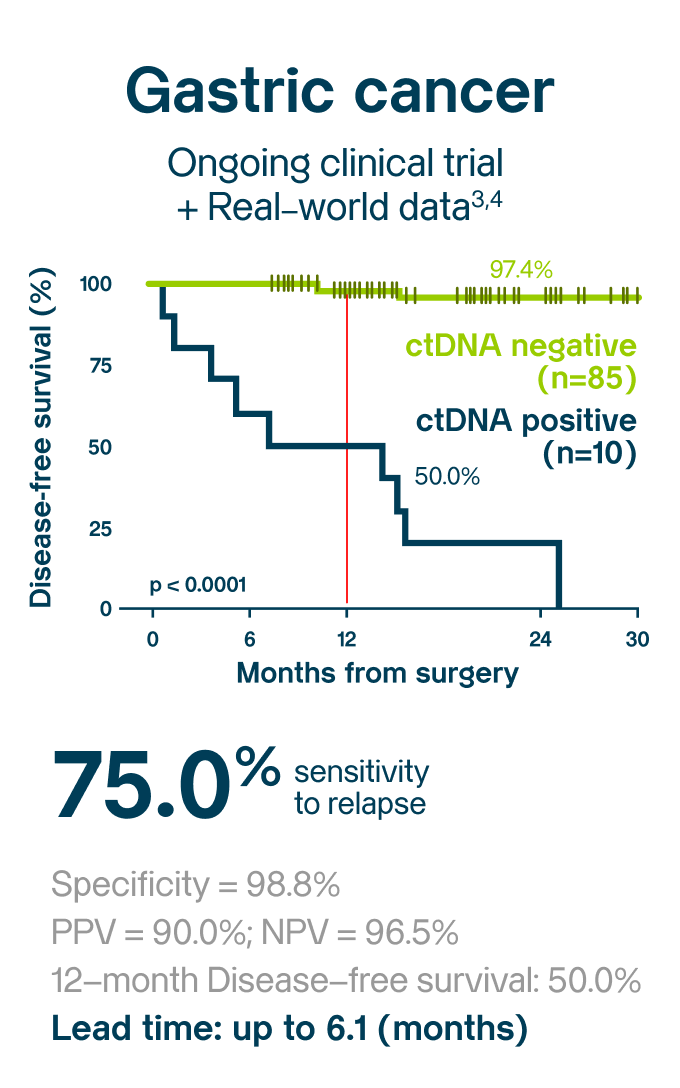Beyond Personalization for
Precision Oncology
A patient-first approach to optimize core molecular indicators with ctDNA insights
- How can this NGS test benefit my patient?
- Does it apply for early stages or advanced stages?
- How does it help to monitor treatment?
- 01 - Beyond Personalization
- Genomic profiling methodology
- Clinical utility of personalized ctDNA
- Tailored options for different conditions
- 02 - Patient-first approach
Critical treatment insights from a comprehensive test - 03 - Clinical Validation
Performance data that informs treatment effectiveness and early recurrence - 04 - Cancer Types, Technical Specs & Turn-around time
01
Beyond Personalization
K-TRACKTM next-generation sequencing assay provides critical insights for a patient's genomic profile, allowing precise identification of treatment eligibility
Personalization continues beyond with selected driver mutations for each person's ctDNA profile, making minimal residual diseases (MRD) detection and dynamic monitoring more precise.
ctDNA utility
Besides performing minimal residual diseases (MRD) detection, our unique mutation & hotspot panel also covers dynamic monitoring of ctDNA profiles for patients at metastatic stages or patients without available tumor sample.
Correlation of dynamic ctDNA and tumor progression
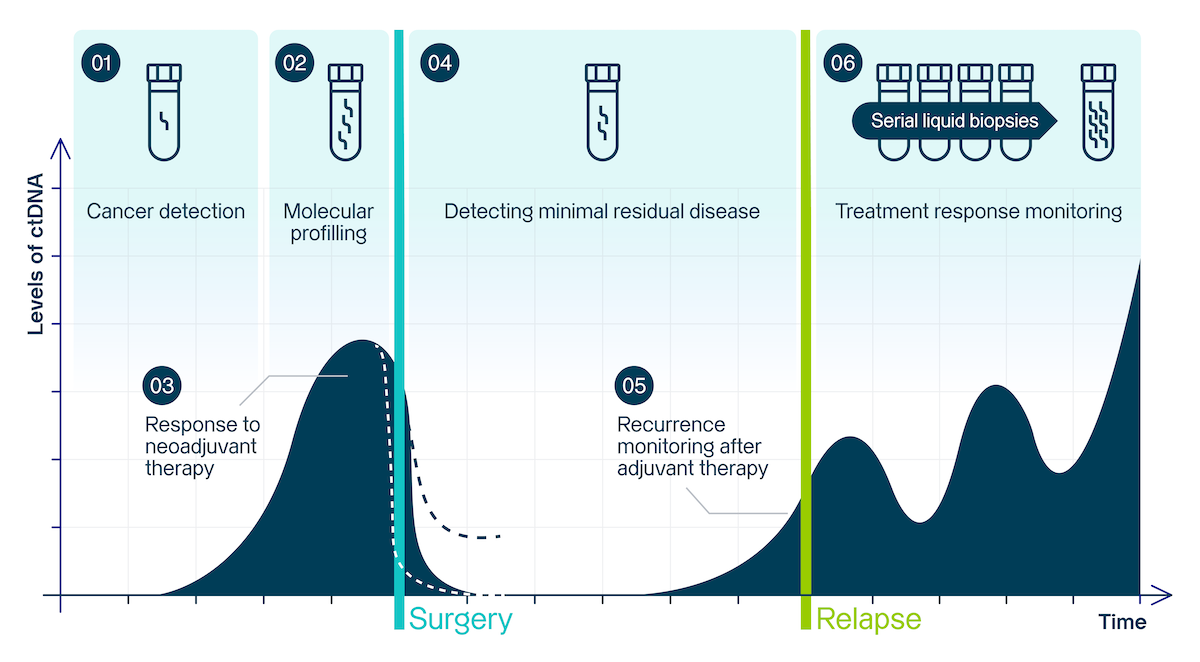
02
A patient-first approach
To bring the most optimized, cost-efficient NGS test for a patient, K-TRACKTM studies 04 key molecular indicators unique to each patient: - Actionable mutations
- MSI Status
- Germline mutations
- MRD/Dynamic ctDNA
03
ctDNA assay Clinical Validation
K-TRACKTM assay provides longitudinal ctDNA monitoring that showed clinical utility in predicting disease-free survival and early relapse detection in cancer patients. 1,2,3,4,5
1. Front Oncol vol. 12 1069296. 12 Dec. 2022 | 2. Mol Oncol vol. 17,4 (2023): 598-610 | 3. CO Glob Oncol vol.9, Supp_1 (2023): 110-110 | 4. Annals of Oncology 34 (2023): S1624 | 5. APBCS 2024
Performance Data
Evidence of Treatment Effectiveness & Early Recurrence
04
Cancer Types, Technical Specs & Turn-around time
Technical Performance & Turn-around time
| CANCER TYPES & BENEFITS FROM TEST RESULTS | ||||
|---|---|---|---|---|
| Actionable mutations | MRD/Dynamic cDNA | MSI Status | Germline mutations | |
| Lung cancer (NSCLC) | ||||
| Liver cancer | ||||
| Esophageal cancer | ||||
| Gastric cancer | ||||
| Pancreatic cancer | ||||
| Colorectal cancer | ||||
| Breast cancer | ||||
| Ovarian cancer | ||||
| Endometrial cancer | ||||
| Prostate cancer | ||||
| K-TRACK | K-TRACK MET | K-TRACK BO | |
|---|---|---|---|
| ctDNA DETECTION RATE | |||
| Hepatocellular carcinoma | 96.7% | 99.0% | 85.2% |
| Colorectal cancer | 87.2% | 89.0% | 84% |
Breast cancer
| 56.5%
| 72.2% | 60.0% |
| Lung cancer (NSCLC) | 61.1% | 88.3% | 76.3% |
| Gastric cancer | 52.9% | 73.9% | 64.7% |
| Ovarian cancer | 54.5% | 88.3% | 72.7% |
| Specificity | >99% | ||
| TURN-AROUND TIME | |||
| Actionable mutations | 07 days (FFPE) | 07 days (FFPE) | 07-14 days (Liquid Biopsy) |
| MSI Status | 07 days | 07 days | X |
| Germline mutations | 21-30 days | 21-30 days | 07-14 days |
| MRD/Dynamic ctDNA | 21-30 days | 21-30 days | 07-14 days |
(*) Turn-around time takes effect upon sample arrival at Gene Solutions' regional oncology labs and clears sample quality checks.
